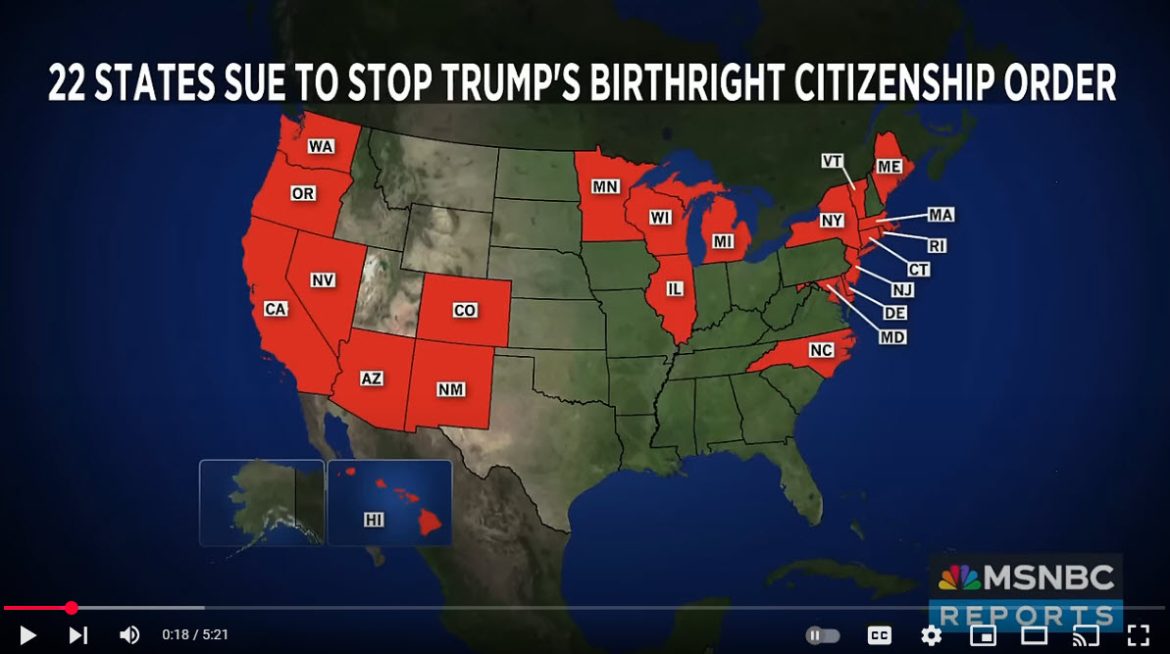In a move igniting significant legal and political debate, President Donald Trump has signed an executive order aiming to end birthright citizenship for certain children born in the United States. The order, titled “Protecting the Meaning and Value of American Citizenship,” asserts that the 14th Amendment does not automatically confer citizenship to children born on U.S. soil if their parents are non-citizens or unauthorized immigrants. Specifically, it targets cases where the mother is unlawfully present or on a temporary visa, and the father is neither a U.S. citizen nor a lawful permanent resident. The policy is set to take effect on February 19, 2025.
This executive action has prompted swift legal challenges. Attorneys general from 22 states have filed a lawsuit seeking to block the order, arguing that it violates the 14th Amendment, which guarantees citizenship to “all persons born or naturalized in the United States, and subject to the jurisdiction thereof.” New Jersey Attorney General Matthew Platkin emphasized that the order undermines constitutional principles, stating, “Presidents are powerful, but they are not kings.” California Attorney General Rob Bonta, also leading the opposition, has taken steps to prevent local law enforcement from cooperating with federal immigration authorities in enforcing the new policy.
Supporters of the executive order, including Republican Congressman Chip Roy of Texas, argue that the 14th Amendment’s jurisdiction clause has been misinterpreted. They contend that children born to individuals who are not subject to full U.S. jurisdiction, such as unauthorized immigrants, should not automatically receive citizenship. This perspective challenges the long-standing interpretation upheld by the 1898 Supreme Court decision in United States v. Wong Kim Ark, which affirmed birthright citizenship for children born in the U.S. to foreign parents.
Legal experts widely anticipate that the executive order will face significant hurdles in the judiciary. Many constitutional scholars assert that altering birthright citizenship would require a constitutional amendment, not an executive directive. The American Civil Liberties Union (ACLU) has also filed a lawsuit challenging the order, emphasizing that it threatens to create a stateless underclass and contravenes the clear intent of the 14th Amendment.
As the nation braces for a protracted legal battle, the outcome of this dispute will have profound implications for U.S. immigration policy and the interpretation of constitutional rights. The federal judiciary, including a Supreme Court with several Trump-appointed justices, will play a pivotal role in determining whether the executive branch has the authority to unilaterally redefine the parameters of American citizenship.



